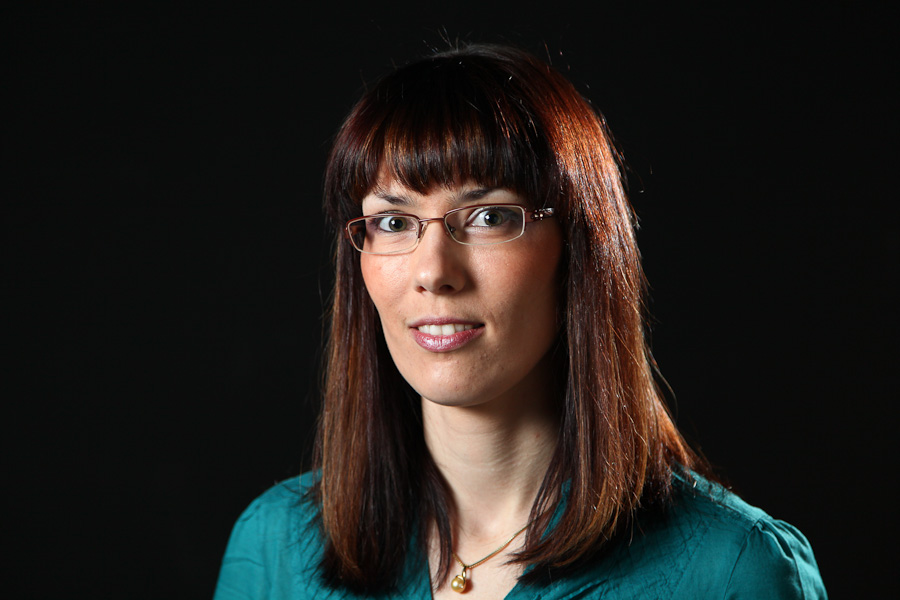Dr Ana Bojinović Fenko
Ana Bojinović Fenko

Citizenship:
Slovenian
Background:
Ana Bojinović Fenko received her PhD at the University of Ljubljana, Faculty of Social Sciences in June 2009 in the field of International Relations. Her thesis is titled: “Mutual constitutive and causal effects of the states' foreign policy and regional structure within the context of the regionalisation process in the Mediterranean.” She has been teaching as Assistant Professor in IR at the undergraduate and Master programmes of European Studies, Diplomacy and International Relations at the same institution. She teaches the following courses: Introduction to Scientific Writing, Basics of the European Union, International Relations, European Union External Relations, Common Foreign and Security Policy of the EU, Foreign Policy, Research seminar for European Studies and Politics of European Integration. She is coordinator of the European Studies Programme at the Faculty.
She has been affiliated as researcher with Ljubljana based Centre of International Relations, (http://www.mednarodni-odnosi.si/cmo/index.htm) since 2004. She has published about 30 scientific articles and book chapters and edited three books. Her expertise focuses on international regionalism (Mediterranean region), analysis of foreign policy and EU external action (enlargement policy to Western Balkans, Mediterranean neighbourhood policy and inter-regionalism).
Her expert work is related to implementation of extracurricular class on international organisations and the EU in secondary schools (2006-08); managing editorial work with Journal of International Relations and Development (JIRD) (2004-2010), teaching candidates for diplomatic titles within the Slovenian Ministry of Foreign Affairs (2013-), performing as National expert for EU-25/27 Watch, Lisbon Watch pan-European expert surveys (2005-13) and recently in Building Bridges EU Network of national experts on European integration (2014-). She is Co-editor of International Journal of Euro-Mediterranean Studies (IJEMS) (2015-). She speaks several languages: Slovenian (mother tongue), English, French, Bosnian, Croatian, Montenegrin and Serbian.
Publications:
- Roter, Petra and Bojinović Fenko, Ana: Parliamentarisation in a Post-Conflict Context: The Kosovo Assembly Support Initiative. Parliamentary Affairs, 2014.
The purpose of this paper is to analyse collaboration in the process of post-conflict reconstruction in Kosovo. Based on extensive empirical research, we focus on the parliamentarisation in Kosovo in the context of a multi-stakeholder partnership (MSP). We investigate the creation, operation, and effects of co-operation within an MSP called the Kosovo Assembly Support Initiative (ASI).
- Bojinović Fenko, Ana: Compatibility of regionalizing actors' activities in the Mediterranean region: what kind of opportunity for the European Union?, Journal of Southeast European & Black Sea Studies, 2012, Vol. 12, is. 3, pp. 407-429.
Using conceptualisation of levels of regionalism and two-fold typology of actors (governmental–non-governmental, and external–internal), the article presents a quantitative and qualitative analysis of regionalising actors’ activities in the Mediterranean in order to assess their compatibility in different fields of regional co-operation.
- Bojinović Fenko, Ana and Urlić, Ana: Political Criteria vs. Political Conditionality: Comparative Analysis of Slovenian and Croatian European Union Accession Processes, Croatian International Relations Review, 2015, Vol. 21, No. 72, pp. 107-137.
This study analyses the differences in content and procedure in the application of political criteria and political conditionality in the EU accession processes of Slovenia and Croatia. The article ascertains that with regard to substance, the Commission and EU member states did apply political criteria more extensively and meticulously to Croatia in comparison to Slovenia, but mainly due to the difference in the states’ initial assessment of preparedness for EU membership and the application of the principle of own merits.
- Bojinović Fenko, Ana: Regions Up and Down: (Re)defining the Nature and Effects of the European Union Regional Agency, Revue d'intégration européenne, 2013, Vol. 35, is. 1, pp. 91-97.
This review article addresses three books dealing with regionalism. Article’s aim is to initially present a definition of region based on a common ontological assumption of all three works, grounded in the changing nature of states on the ‘inside’ (the influence of globalization and information technology on states’ control of their properties) and on the ‘outside’ (illustrated through the ‘Mode 2.0 multilateralism’ metaphor). The second part of the article deals with a substantive presentation of the books’ contents through a short overview of the central research questions and an integration of findings of the three pieces of literature.
- Bojinović Fenko, Ana: An Evaluation of the EU-Mediterranean Region-Building from the Perspective of the Regionalization Process in the Mediterranean, De Lombaerde, Philippe (ed.). The EU and world regionalism: the makability of regions in the 21st century, (The International Political Economy of New Regionalisms Series). Farnham; Burlington: Ashgate, cop. 2009, pp. 187-203.
The focus of this chapter is to evaluate the political dimension of the inter-regional Euro-Mediterranean (EU-Med) relations with a deeper insight of the EU-Med policies’ effects from the perspective of the regionalisation process in the Mediterranean. The underlying motif of the research is to contribute to the question whether regions are ‘makable’ and provide a case study of the EU (inter-)regionalist project of making the EU-Med region.
Projects:
- 2011/12: Academic coordinator of three Jean Monnet Module projects titled EU at school; see webpage: Innovative teaching for continuing learning of EU integration.
-
2013/14: Problem based learning and cross-curricular teaching of the EU (PROCROS) and 2014/15: Enhanced EU content in primary school curricula (EU4PRIM). Webpage of all three projects: http://www.mednarodni-odnosi.si/cmo/teaching.htm
-
Active researcher in EU-CONSENT, EU-GARNET, MULTIPART and LISBOAN projects within the 7th EU framework programme Networks of Excellence and ACADEU project during 2014/15: http://www.acadeu.eu/
-
Involved with project Building Bridges as national expert on EU affairs (December 2014-March 2016): https://www.ifri.org/en/recherche/zones-geographiques/europe/projet-building-bridges
